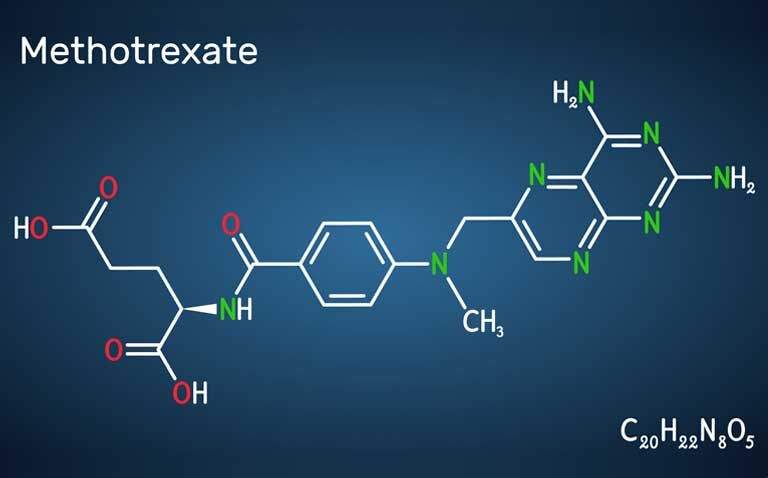Methotrexate (MTX) is an effective treatment for children with severe atopic dermatitis and provides more sustained disease control than ciclosporin (CyA) upon discontinuation, according to the findings of a recent randomised controlled trial.
In the TREAT trial, published in the British Journal of Dermatology, a team led by King’s College London, set out to examine the safety and efficacy of these two main first-line conventional systemic immunosuppressive therapies in children and young people with severe atopic dermatitis.
The parallel group, assessor-blinded randomised trial included 103 participants aged between two and 16 years of age whose atopic dermatitis was unresponsive to potent topical treatment.
The participants were randomised to receive either 4 mg/kg/day of CyA or 0.4 mg/kg per week of MTX for a total of 36 weeks. They were also followed up for 24 weeks.
The co-primary endpoints were the change from baseline to 12 weeks in the Objective Severity Scoring of Atopic Dermatitis (o-SCORAD) and time to a first significant flare (relapse) after treatment cessation.
Among the 52 participants assigned to CyA, there was a greater improvement in disease severity by 12 weeks (mean difference o-SCORAD = -5.69 p = 0.01). In fact, more participants reached o-SCORAD-50 at 12 weeks in the CyA arm compared to the MTX (Odds ratio, OR = 2.60, 95% CI 1.23 – 5.49, p = 0.01).
However, by week 60, MTX was superior (OR = 0.33, 95% CI 0.13 – 0.85, p = 0.02). Furthermore, participant-reported post-treatment flares were higher in the CyA arm (OR = 3.22, 95% CI 0.42 – 6.01, p = 0.025) and both treatments gave rise to a similar level of serious adverse events.
The researchers also highlighted that MTX is significantly cheaper than CyA and concluded that MTX is a useful and safe treatment in paediatric patients with severe atopic dermatitis and a good alternative to CyA, especially in settings where healthcare resources are limited.
Methotrexate is potential gold standard
Until now, there has been no adequately powered randomised clinical trial evidence in relation to the safety and treatment success of methotrexate and ciclosporin for paediatric patients with atopic dermatitis. With new high-cost therapies being introduced, establishing a gold standard for treatment with the conventional systemic therapies like methotrexate and ciclosporin is deemed necessary.
Commenting on these findings study author Professor Carsten Flohr, chair in dermatology and population health sciences at King’s College London and consultant dermatologist at St John’s Institute of Dermatology, part of Guy’s and St Thomas’ NHS Foundation Trust, said: ‘This is the largest paediatric trial using conventional immuno-modulatory treatments in severe atopic dermatitis and was conducted across 13 centres in the UK and Ireland and is likely to change our treatment paradigm around this condition, not just for patients in the UK but also internationally.‘










